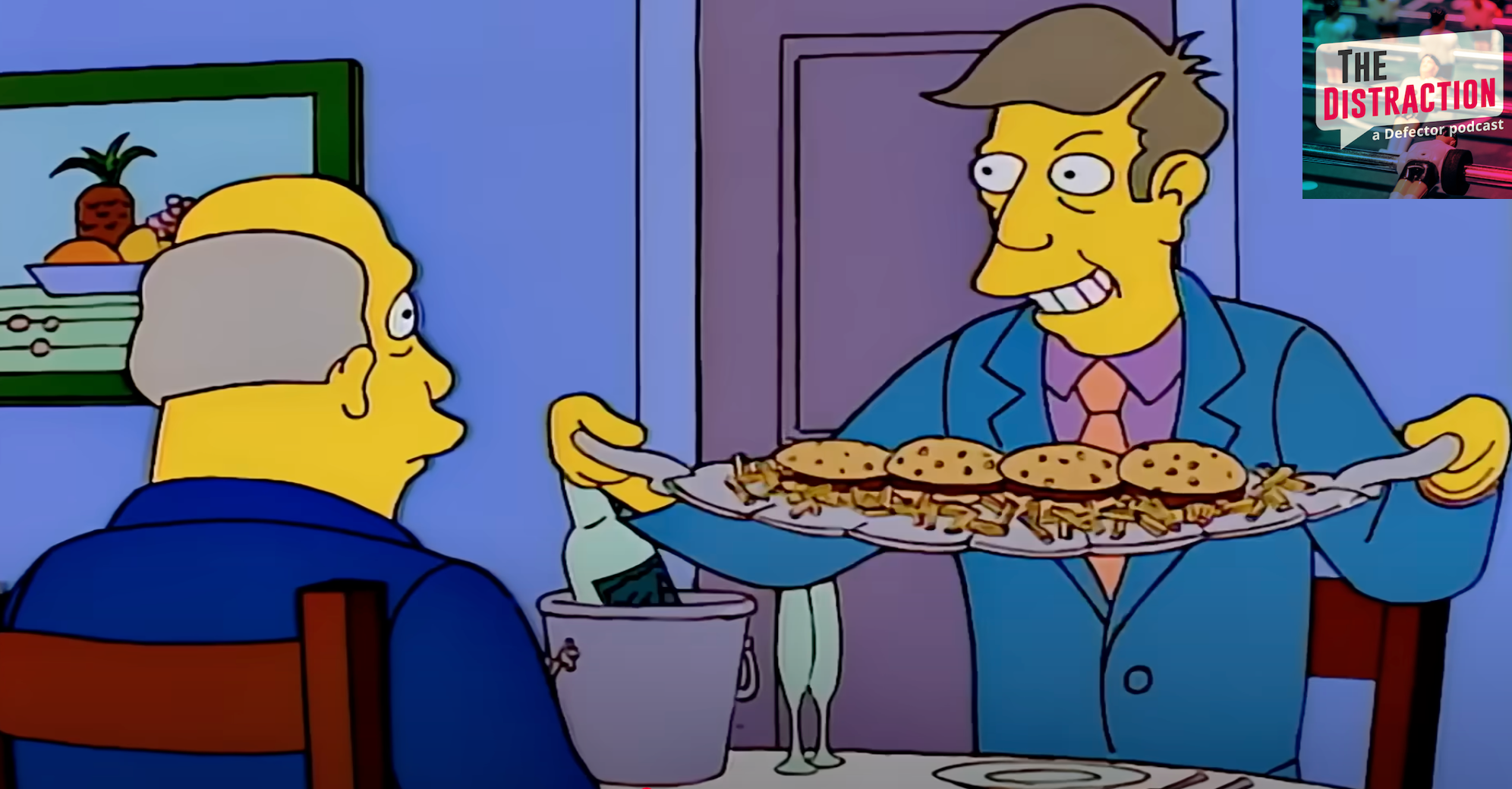It is not a boast and not an apology, but simply an assertion of fact: I could be awakened from a deep sleep, abducted from public transit, or otherwise put under extreme duress and still happily be able to talk about The Simpsons for a solid hour. I am fortunate, I think, that my youth overlapped with a period of time during which The Simpsons was basically the wildest and most innovative television programming that anyone had ever seen. I write "I think," there, because I am aware that all those bits and songs and in-jokes are taking up space in my brain that might otherwise be occupied by, say, "things I learned in college." Still, I can't say I really regret it. If you have to fill your brain up with anything, it might as well be the funniest stuff that's ever been on TV.
All of which is to say that Drew and I were both extremely well-prepared to welcome Alan Siegel, author of Stupid TV, Be More Funny, a new history of The Simpsons, to the pod this week. The vast majority of the episode is given over to discussing all that—the book, the show, the ways in which it shaped and was shaped by the culture of the 1990s—and could, were it not for the requirements of the workday and whatever vestigial sense of shame remains re: talking about TV into a podcast microphone, have gone on more or less indefinitely. We open the episode by talking to Alan about the protests, and the outsized, idiotic, and horrifying state response to those protests, happening in Los Angeles, where Alan lives. We will surely return to this topic in the future, and lord knows that situation has been occupying a wide swath of my attention for the last week. If it's not something you want to hear on the famous podcast where Drew and I say "pee pee" and "poo poo," you can jump to the nine-minute mark and find yourself safely in Springfield.
Stupid TV, Be More Funny reads like one of Siegel's (many) delightful pop culture history blogs for The Ringer, and is brisk and comprehensive in making its case for the show as both a cultural phenomenon and collaborative masterpiece. There was no real debate on any of that in the episode, but we discussed what The Simpsons meant to us as young weirdos, what kind of values the show instilled in its viewers, and its staying power as one of the all-time examples of what Alan calls "secret handshake shows." But we also talked about what's in the book—the tension between creator Matt Groening and savant showrunner Sam Simon, the endearingly disgusting conditions under which the show was created, and how a TV show made by people who were raised by TV somehow wound up subverting more or less everything about how TV was made.
We also discussed The Simpsons as a real-world phenomenon, one which was big enough at its peak to spin up a multimillion dollar authorized (and unauthorized) T-shirt economy around itself and become a campaign talking point, in the negative sense, in George H.W. Bush's ill-fated 1992 re-election campaign. But it is probably no surprise that we kept coming back to the show itself, the strange geniuses that made it and the unique cultural moment that made them, and the even stranger industry context in which such a show could not only come to exist in the first place, but without network executives being able to offer notes on any of it. How could we not? I probably do not need to tell you that Drew does a Mr. Burns voice during all this. You might be surprised by how good it is. I was. Maybe I shouldn't have been. He'd clearly been practicing it for years.
If you would like to subscribe to The Distraction, you can do that through Apple Podcasts, wherever else you might get your podcasts, and Spotify if absolutely necessary. Thank you as always for your support.






